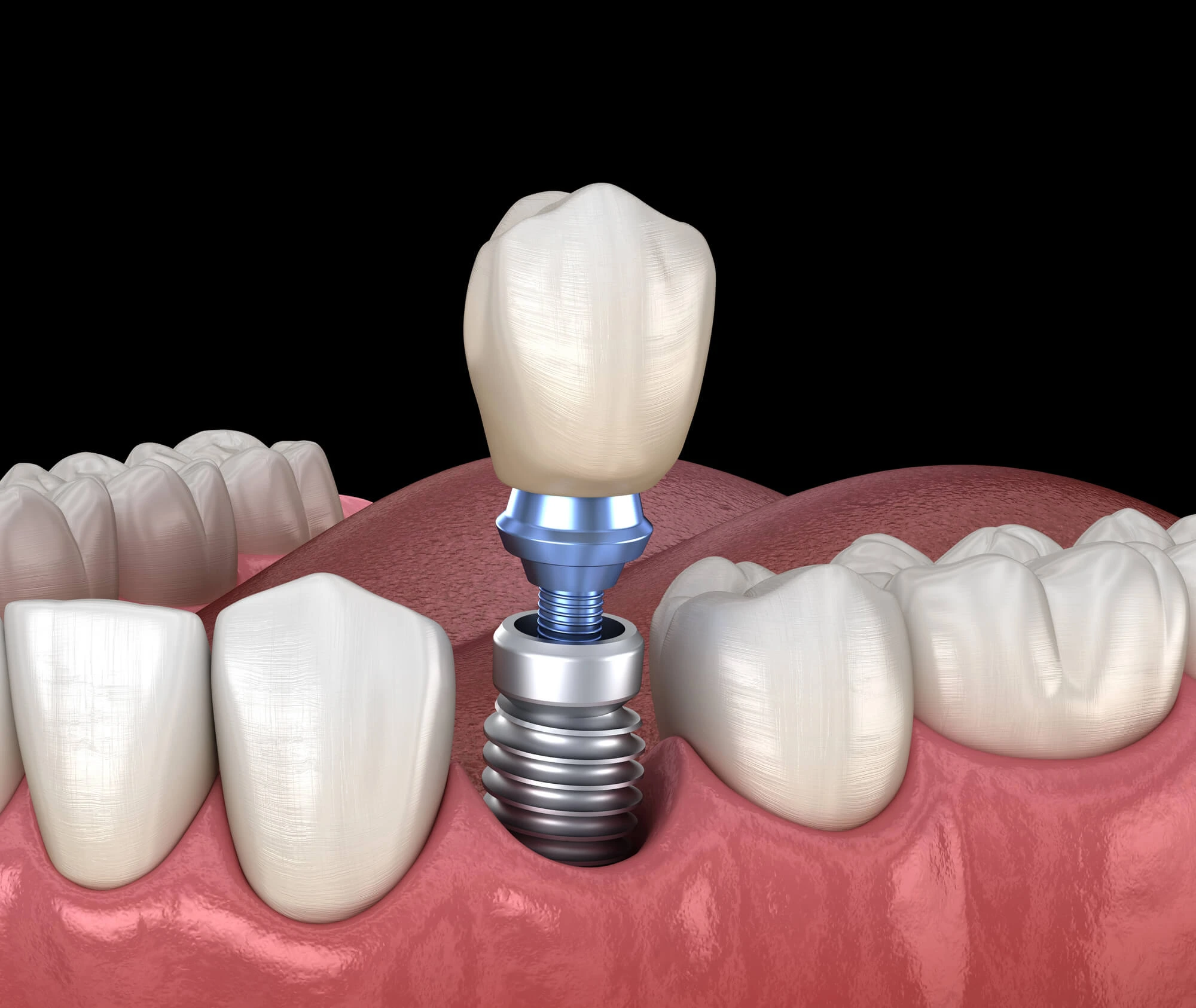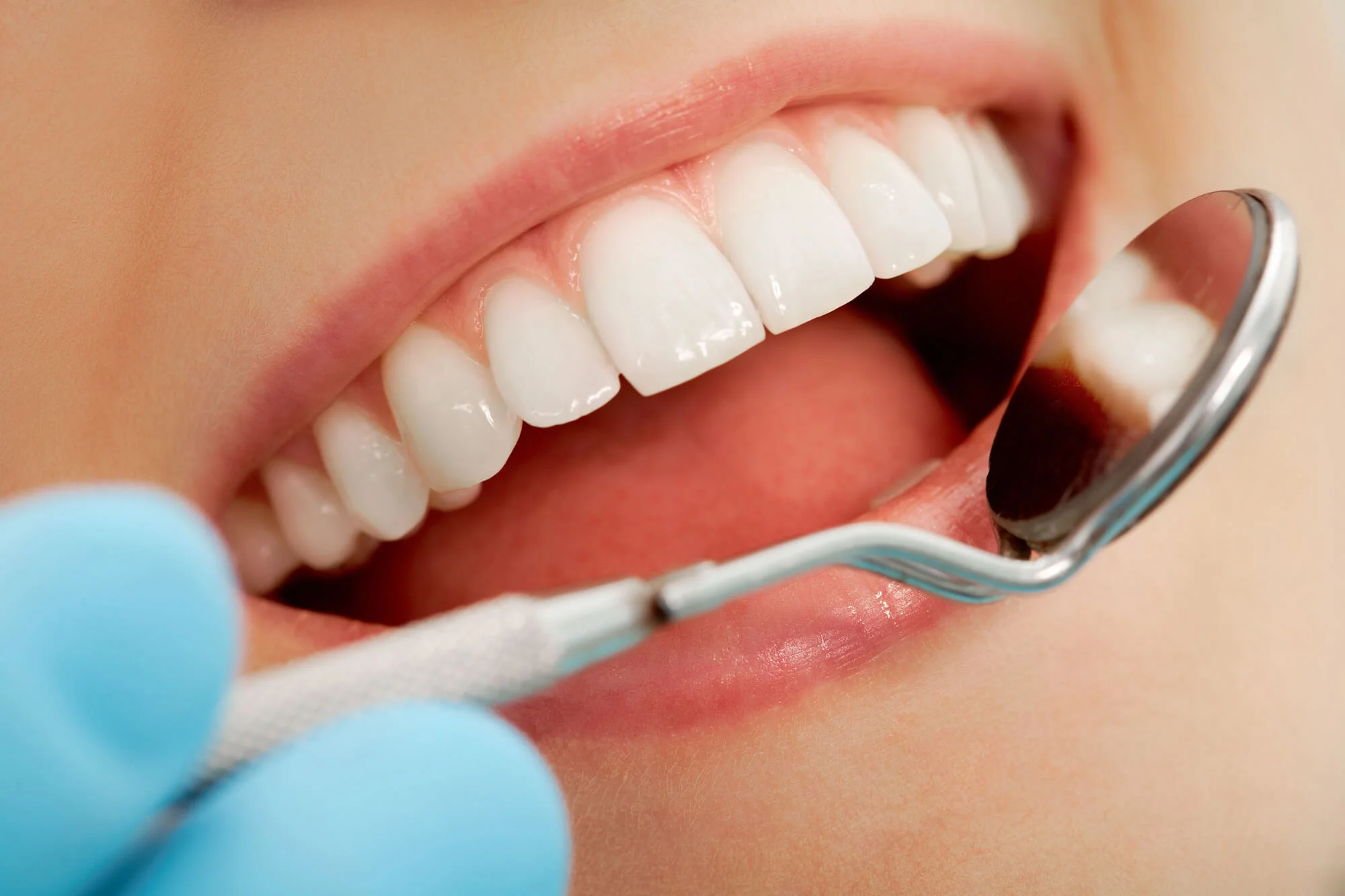
Are Dental Implants Painful? Understand the Process to Prepare
July 8, 2025
Missing teeth can damage oral health, so any office offering advanced dental care in Montgomery, AL, will suggest restoring them immediately.
Moreover, tooth loss can also impact mental and emotional well-being. Gaps in your smile, especially in noticeable areas, can make you self-conscious about showing off your smile, cause you to cover your mouth when you laugh, or even cause you to avoid social situations. To prevent that, implants can restore your smile and confidence, but are they painful?

What Are Dental Implants?
Dental implants are tiny, threaded posts that replace lost teeth through surgery. The majority of implants are composed of titanium, which is a biocompatible material that melds with your bone. This keeps your jawbone healthy and guarantees strong stability, allowing you to enjoy all of your favorite foods with ease.
They primarily consist of three parts:
- Titanium Post: This is the part that blends in with your jawbone. It is like an artificial tooth root. During an oral surgery procedure, a provider inserts it into your jawbone.
- Abutment: This is a very small connector post. It extends just past your gums and screws into the threaded post. It provides the framework for your new prosthetic tooth.
- Restoration: Dental restorations are any prosthetics used to replace or repair teeth. They can be crowns, bridges, or dentures.
Is the Process of Dental Implants Painful?
As you can see, implant surgery involves attaching an artificial tooth to your jawbone—so it makes sense to wonder, does it hurt?
- During Surgery: Because implant surgery is done under local anesthesia, the implant placement site will be totally numb. There won't be any pain, but you could feel the pressure or vibration of the drill. For patients with dental anxiety, sedation or general anesthesia is also an option, ensuring they’re completely relaxed and still during the process.
- Post Surgery: After the anesthesia wears off, you may experience some discomfort following the procedure. Swelling and some soreness are present, but they are usually tolerable. Most people compare it to the soreness of getting a dental extraction.
How Long Does the Pain Last?
Though it varies from person to person, most people experience mild to moderate pain following dental implant surgery. A general idea of what to expect includes:
- Patients tend to experience the most discomfort during the first 24 to 48 hours. You may notice swelling and soreness in the affected area, but these side effects are manageable with over-the-counter pain relievers or painkillers prescribed by your dentist. Additionally, ice packs can help reduce swelling.
- On day three, things begin to calm down. You will still feel sore, but the swelling should have subsided, and you will be more comfortable.
- Most of the soreness should have subsided one week after surgery. You may still want to avoid chewing directly on the implant site, but most patients feel well enough to resume normal activities within 2-3 days of surgery. Follow-up appointments with the dentist will ensure that healing is progressing as expected.
- The area should be almost completely healed 2-3 weeks after surgery. Most patients should experience little to no pain and be able to resume their normal diet.
If you had a more complex procedure, such as multiple implants or a bone graft, recovery may take longer. However, severe pain over an extended period is uncommon.

How to Manage the Pain After Implants
Even if you can experience discomfort after implant surgery, there are tactics you can use to make it subside. Some tips to manage implant-surgery pain include:
- Pain Relievers: Your dentist may have prescribed you some over-the-counter medications after surgery. Take them as indicated. Oftentimes, these are accompanied by antibiotics to prevent infections.
- Cold Compress: Applying ice packs or cold compresses to the outside of your cheek in 10-minute intervals for the first 24 hours can help reduce swelling and numb the area.
- Stick to Soft Foods: Eat anything easy without chewing too much, such as smoothies, soup, or yogurt. Steer clear of crunchy or hard foods for a few days.
- Rinse with Salt Water: Rinsing the area gently with warm salt water after a day can help keep it clean and hasten the healing process.
- Rest: During the first few days following surgery, take it easy. Steer clear of demanding activities that might exacerbate swelling and blood flow near the surgical site.
Pain After Implant Surgery: What’s Beyond Normal
Swelling, tenderness, and some pain are normal during the week after your surgery—but if these symptoms become severe, they may be indicators that something is wrong.
Some signs to look out for include:
- Throbbing Pain: Throbbing pain after dental implant surgery could indicate that the incision has opened up. Your oral surgeon may advise you to come back in, rinse your mouth with an antiseptic mouthwash, and prescribe antibiotics.
- Tooth Next to the Implant Hurts: A painful tooth next to your dental implant may indicate that the crown is not fitting properly, which could affect the positioning of your neighboring teeth.
- Ear Pain: Ear pain is possible if your implant is close to the back of your mouth. It might, however, also result from an infection. If you have ear pain, it's best to contact your dentist.
- Pain After 3 Weeks: After two weeks of receiving your implants, you should feel much better and resume your regular activities. Therefore, pain after the first two weeks is a warning sign that something might be amiss, usually an infection. Make an appointment with your dentist. They will give you antibiotics to eradicate the infection and clean the implant site.

Prepare for Advanced Dental Care in Montgomery, AL, with These Tips
Dental implant surgery may feel scary—after all, any surgical procedure that involves your bones should not be taken lightly. Nevertheless, modern dentistry has advanced enough to ensure your satisfaction and safety every step of the procedure.
At Parkside Dental Care, we have the knowledge and tools necessary to guarantee your comfort at every stage. Contact us today for more information!

%20(1).webp)

%20(1).webp)




.webp)



